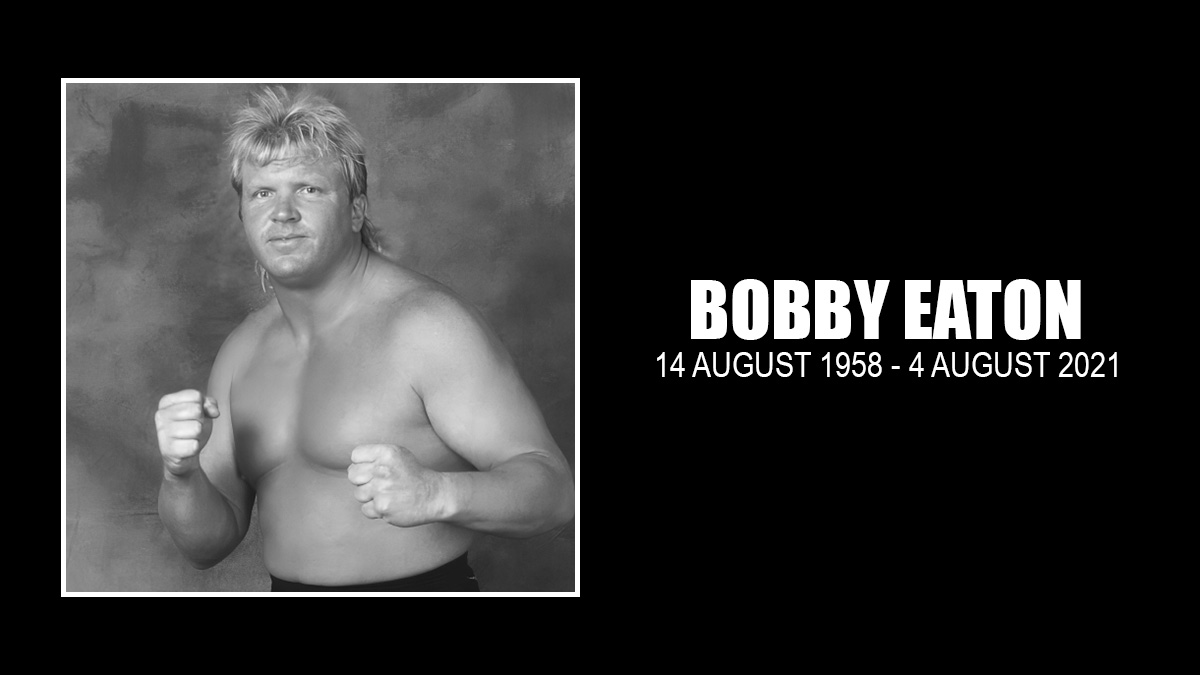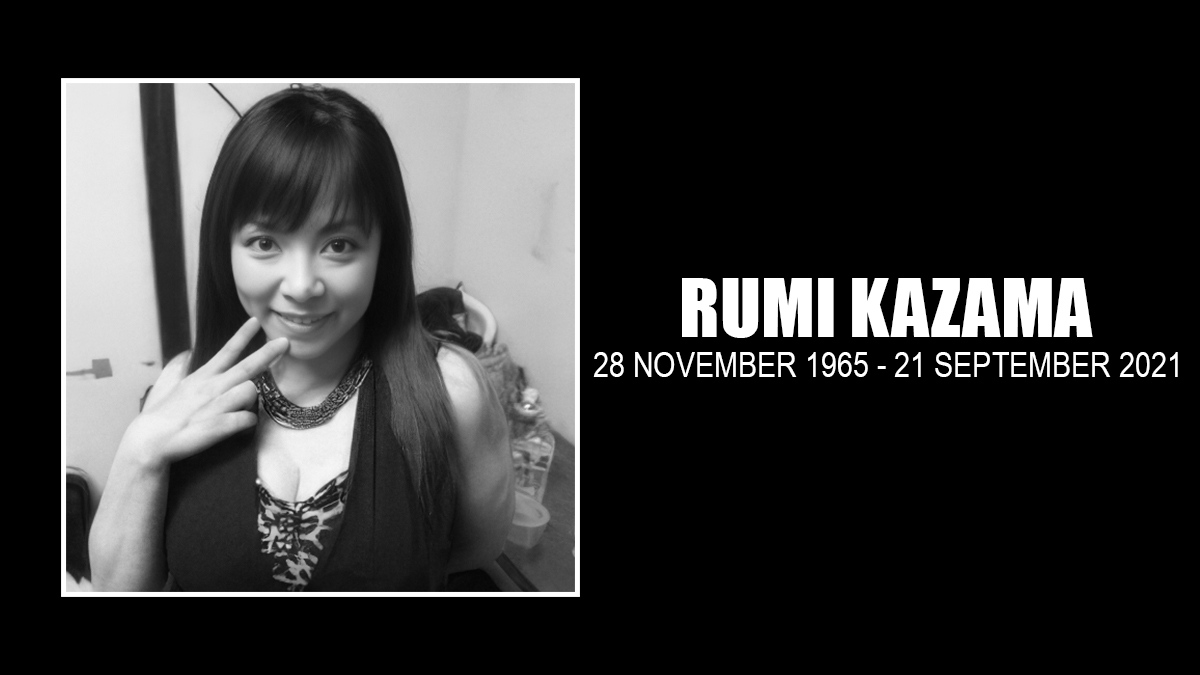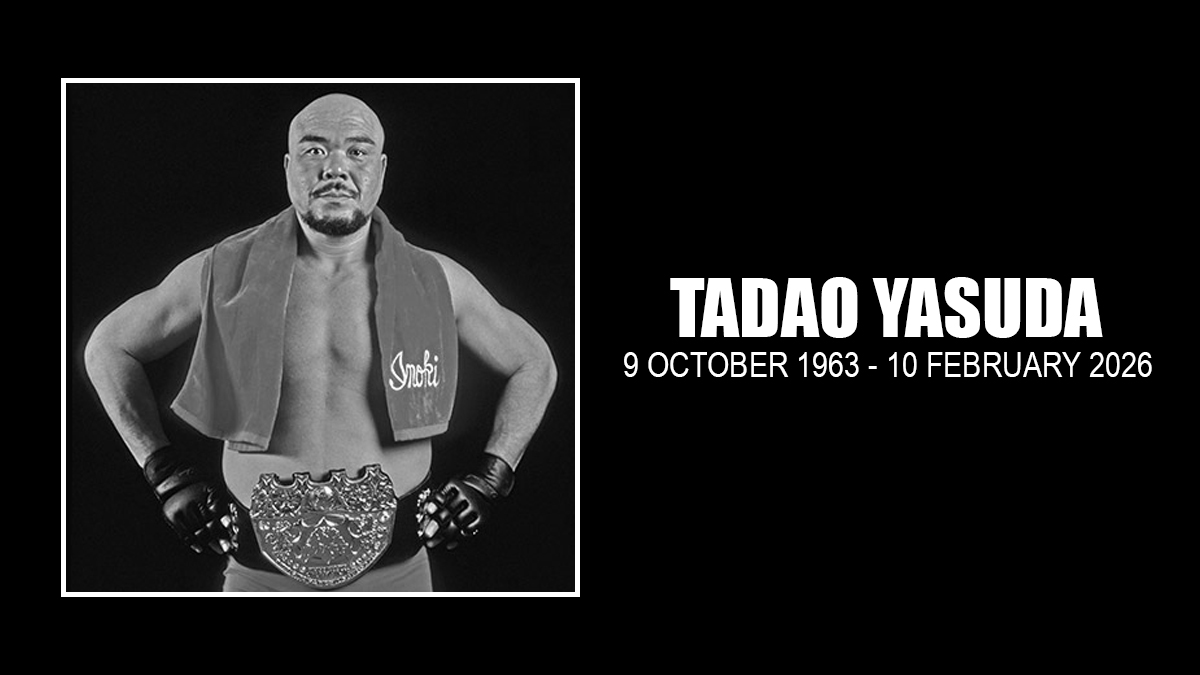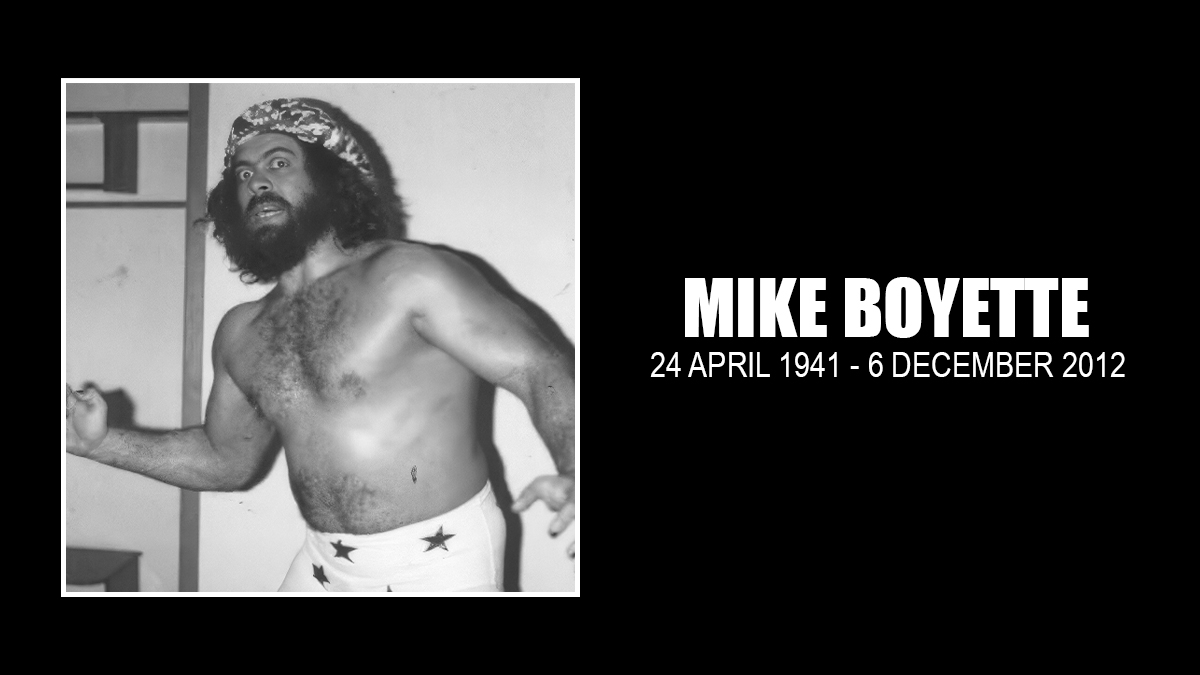“Beautiful” Bobby Eaton, a part of the legendary tag team, The Midnight Express, has died, a little more than a month after his wife, Donna, died. He was 62.
Eaton’s sister, Debbie, broke the news that his daughter, Taryn, found him dead in his home Wednesday night.
A native of Huntsville, Ala., born on August 14, 1958, Eaton started putting the ring up in Nick Gulas’ promotion when he was barely 13 years old, in places like Huntsville, Florence and Birmingham, then hopped in and started wrestling with a friend.
“We were practicing holds that we’d seen the other guys do. Now, thinking back about it, we probably halfway killed each other,” Eaton said in The Pro Wrestling Hall of Fame: The Tag Teams, where the team was ranked in the Top 25 of all time. Eaton also wrote the foreword for the book, as he is hanging off a scaffold on the cover.
“I got to know the wrestlers and Tojo (Yamamoto) and Gypsy Joe worked with me. One night in Birmingham, a wrestler didn’t show up and Nick told me to take his place. From then on, I was hooked,” Eaton said in a 1982 newspaper article.
Eaton wrestled at Lee High School in Huntsville, Alabama.
But Eaton was notable before he was ever in the Midnight Express.
In a 1982 article in a Nashville newspaper, the 23 years old, is praised. “Eaton is one of our top box office attractions. He’ll bend the rules anyway he can to win,” said promoter Jerry Jarrett. Former promoter Nick Gulas called Eaton “one of the two or three toughest wrestlers in the Southeast.”
By that point, he’d already been a champion, teaming with Nick Gulas’ son, George, as the Jet Set, winning Mid-American tag titles.
Eaton’s big break came in the fall of 1983, when Cowboy Bill Watts swapped talent with Jarrett’s Tennessee promotion and brought Dennis Condrey and Bobby Eaton, a couple of reliable but underutilized hands, to his Louisiana territory. Even Condrey didn’t realize he’d been bartered away.
“We didn’t know we were traded. Bill Watts told me and Bobby, ‘I’d like to have you come to Louisiana and Oklahoma. I’ll give you more money,’ and I said, ‘OK.’ Then we said, ‘Well now, where did this guy go? This guy was wrestling in Oklahoma the other day and now he’s in Memphis.’ Then we started figuring it out for ourselves. So they did a little switcheroo on us,” Condrey said.
The trade definitely worked to the benefit of wrestling fans. Together, “Loverboy” Dennis Condrey and “Beautiful” Bobby Eaton (from the Alabama The Beautiful slogan), with motormouth Jim Cornette as their manager, became The Midnight Express, the last great heel team of old school wrestling. With Stan Lane later filling in as Eaton’s comrade, The Midnight Express incensed and thrilled fans for seven years. (Rick Rude, Barbarian, and Jim Neidhart were some of the names that went to Tennessee in the trade.)
The phrase “Midnight Express” had been used before in wrestling, though not in reference to the movie of the same name. The original Midnight Express was a three-man confederation of Condrey, Norvell Austin, and Randy Rose that worked in Alabama and Tennessee from 1981 to 1983. Others moved in and out of the team, which got its name from the members’ ring wear and choice of cars. “At one time, we all dressed in black. We had black Lincolns, black automobiles and everything else, and we were all out till midnight, so we went as The Midnight Express,” Condrey said.
The team, with Cornette, a ringside photographer-turned-manager as the front man, was an immediate sensation in a territory that had been dominated almost exclusively by powerhouse wrestlers. Their fresh approach and Cornette’s natural ability to annoy fans sent Condrey and Eaton soaring to the top. They won the promotion’s tag belts from Mr. Wrestling II and Magnum T.A, tarring and feathering Magnum in the process. That set up a pitched feud with the Rock ’n’ Roll Express that lasted for almost four years in various parts of the country. “They mostly had bigger guys in Mid-South, so we brought maybe a little more excitement. When we went down there with smaller guys, we had a ton of heat, too. People hated us,” Eaton said.
In a Pro Wrestling Torch interview, Eaton talked about the success of the team with Watts.
I got my first big-time push working for Watts. Not to brag, but he gave us the ball and we ran with it. Going in, I’d heard all of these rumors about Watts. So I called him and told him that I’d heard all sorts of things about working for different promotions. He told me, “Bobby, I guarantee that you’ll make more money than you’ve ever made before.” And I did. He lived up to his word, but damn did we deserve it. We worked out butts off. I must have gotten beat up twice a week. He put so much heat on us. It got bad down there. They still believed wrestling was real down there. They probably still do. That’s a different part of the country down there in Louisiana. Those Cajuns were crazy as hell. It got so bad that Cornette had to start loading his tennis racket. For real, he put a big horse shoe in there. We were fighting with the fans almost every night. I was usually the one who was beaten up. Not really bad, than God, because other guys came out and helped me. It was hard down there. We were on the road for long trips. If we were late going to a town, we were fined.
Cornette playing the part of a sissified “momma’s boy” to perfection, started loading his ever-present tennis racquet with foreign objects for his own good. “I figured, ‘I need some reach on these sons of bitches,’ ” he cracked. Unfortunately, the racquet came into play at unexpected times. “Dennis would forget,” Cornette said. “Dennis would say, ‘Gimme me the racquet!’ I’d throw the racquet in – it’d have a horseshoe in it, a chain around it. Ricky Morton would be laying on his knees and Dennis would take that racquet and throw it over his head, and pow, right in the back! And Ricky’d go, ‘Uhhhhh!’ When an alarmed Cornette whispered that the racquet was loaded, “Oh, yeah, I forgot” was Condrey’s response.
In 1987, Condrey left the team to deal with personal problems. He didn’t tell anyone –”He let me out one night and said, ‘I’ll see you again tomorrow.’ I didn’t see him again for two years,” said Eaton, who didn’t pry into the issue. “I figured if he wanted me to know, he would have told me.” Standing at the ready, though, was Stan Lane. He was in Florida as his team with The Fabulous Ones ran its course, but just as quickly, booker Dusty Rhodes called him about the opening. “Thank you, God!” Lane recalled saying. “The rest is history. It was one of the greatest experiences of my life being in this tag team.”
Fans have debated for years whether the Condrey-Eaton or Eaton-Lane combination was better. Both wrestlers brought different abilities to the table, Eaton said.
“As far as wrestling, Dennis and I were better, but Stan brought more entertainment, more showmanship – handsome guy, good body. Stan lifted me up a little bit with the showmanship.” On a larger scale, Cornette believed that the evolving nature of tag team wrestling makes any comparison of the two teams little more than a barroom debate. From 1983 to 1987, Condrey and Eaton were main eventers who had to draw “old fashioned” heat to make money, he said. “Bobby and Stan were a more high-spot oriented team because instead of the actual main event, their spot was to go out and have the show-stealer … they each filled their spot better than any team in the business,” Cornette concluded.
In 1988, Eaton and Lane held both the NWA U.S. and World titles, winning the top honors when Tully Blanchard and Arn Anderson bolted to the WWF. The Midnight Express followed their rivals to the Northeast, though they talked to the WWF during their NWA championship reign. “We were making plenty of money where we were, so we didn’t need to go anywhere,” Condrey said. Additionally, Cornette said the team preferred the status of tag team wrestling in the NWA. “We liked the teams we could work against. I thought tag team wrestling was featured better in the NWA than it was in the WWF – it was higher on the cards.”
Condrey and Rose returned later in 1988 for a Midnights vs. Midnights feud. In 1990, Cornette and Lane left the turmoil that was WCW, while Eaton continued to work in the company for years. “They didn’t know we were leaving,” Cornette said of the WCW hierarchy. “They didn’t want us.” The WWF recreated a poor imitation of The Midnight Express with Bob Holly and Bart Gunn in 1998. “Fortunately, it didn’t last long, and hardly anybody remembers it,” Cornette cracked. In 2004, the Midnight Express started reuniting, occasionally wrestling and appearing together at fan festivals and independent shows, and keeping their legions of fans in stitches with their tales of the road. “No matter how long we’re away from each other, it’s like we just saw each other last week,” Cornette said. “We always have some kind of bullshit we can talk about that bores everybody else but amuses us no end.”
After the Midnight Express, Eaton was in WCW’s Dangerous Alliance, under Paul E. Dangerously. In a Pro Wrestling Torch interview in March 1993, Madusa Miceli recalled Eaton at the time. “Bobby’s your quiet type, he doesn’t say much. But Bobby’s a very home person, family-oriented,” she said. “Bobby’s very shy. He embarrasses very easily. The guys all liked him. I don’t think there’s one person I know who didn’t like Bobby Eaton. Bobby’s himself, he’s very conservative in life.”
Another one around at the time was “Stunning” Steve Austin. In his 2003 autobiography, The Stone Cold Truth, Austin called Eaton “one of my favorite hands—just an awesome damn wrestler, especially when it came to tag-team matches.” Austin beat Eaton for the WCW TV title.
“I had a ton of respect for Bobby. He had always been a super nice guy to me; one of the nicest guys in the business. And here I was taking that damn belt off of him (WCW TV) the first time we met. He could have treated me like garbage, but he didn’t. I’ve always respected him for that,” wrote Austin. “Bobby would because one of my favorites to work with. I’d ask him all kinds of stuff. He couldn’t really tell you why he did anything, plus you couldn’t understand hardly a word he said with his Alabama drawl and his ‘mouth full of marbles.’ But he had incredible timing. He couldn’t explain it, but it was a pleasure and an education going out there and working with him.”
He was in the Blue Bloods in 1995 with William Regal, as the British star “knighted” Eaton, and he became Earl Robert Eaton. In a script straight out of Pygmalion, Regal tried to culture the Southern boy.
Eaton was in WCW until it closed in 2001, in various capacities.
For a time, he worked in Ohio Valley Wrestling, the WWE-affiliated developmental territory, and was a regular on the independent circuit until 2015, and then at fan fests.
Many will call him a tag team specialist, and it fits Eaton, who won tag belts with Condrey and Lane, as well as Arn Anderson, Rikki Nelson, Duke Myers, Sweet Brown Sugar, George Gulas, Lanny Poffo, Great Togo, and Mexican Angel.
The Midnight Express were inducted into the Pro Wrestling Hall of Fame in 2019, and the Wrestling Observer Hall of Fame in 2009.
Health issues slowed him down in 2006, and then again in 2011, and in the following decade, he had numerous other problems, and had a pacemaker inserted in June 2013. In July 2021, he had been hospitalized.
Bobby’s wife, Donna Eaton, died on June 26, 2021. She was the daughter of fellow wrestler Bill Dundee. They had three children: Dustin, Dylan and Taryn.
“When I find out all the details I will post them,” wrote his sister, Debbie Eaton Lewis, on Facebook. “Bobby was the kindest, loving person you would ever meet.”
Details are still coming in from his passing, and funeral arrangements are not known at this time.




